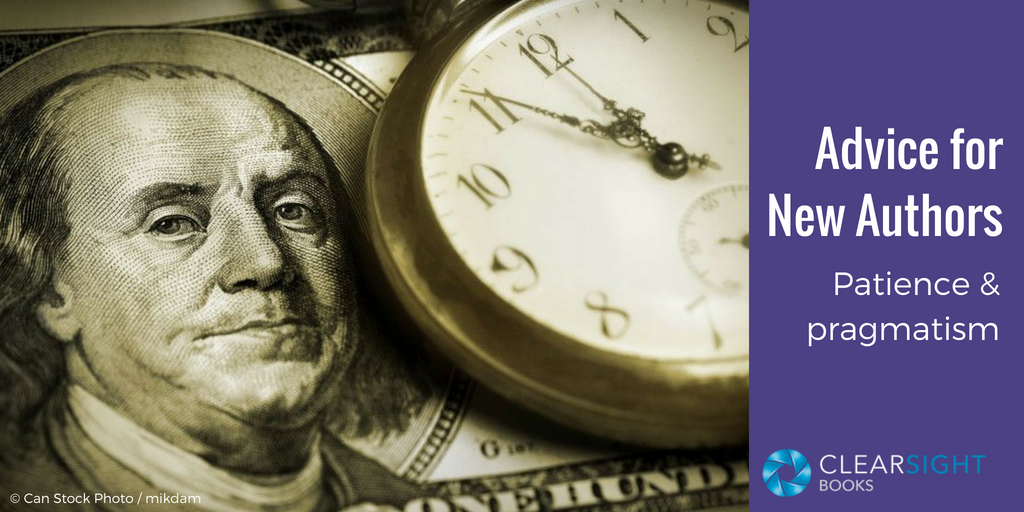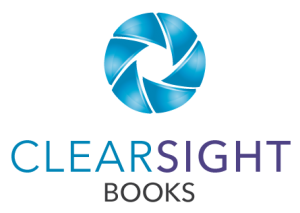 I recently led a discussion with a group of professional speakers about writing a book as part of a business strategy. We didn’t have time to address all the questions submitted in advance, and these two related but distinct questions about advice for new authors got shelved:
I recently led a discussion with a group of professional speakers about writing a book as part of a business strategy. We didn’t have time to address all the questions submitted in advance, and these two related but distinct questions about advice for new authors got shelved:
- What’s your #1 piece of advice for new authors?
- What’s the #1 caution you’d offer new authors?
I don’t normally like questions along these lines—it’s almost impossible to have a #1 piece of advice that applies to a majority of readers, let alone “everyone”—but these two are worth exploring.
What’s your #1 piece of advice for new authors?
This feels like the type of question that could elicit a different answer each time it’s asked. I think it all boils down to this: be patient with yourself and with the writing process.
It takes focus and consistency to generate momentum. Decide ONCE that you’re going to write a book, then don’t give yourself a choice. Just show up and do the work. Some people swear by writing a little bit every single day. Others make better progress by focusing on their job during the week and blocking off weekends to write. Some like weeklong retreats. There’s not one correct or “best” way to write. You get to choose your own process. (But if you don’t show up, it doesn’t get done. No process is no process.)
That said, the creative process is unpredictable. You might start with great momentum, then—kablooey!—something changes. You get a new idea, find new research, or realize you overlooked existing materials on the topic. You get stuck figuring out how to explain something complex or capture the right tone. Whatever it is, it throws you for a loop or sinks you into a pit of despair (take your choice of clichés). Yup. That’s the creative process all right. The only way out is through…
As a result, writing a book often takes longer than you think. Be gentle with yourself if you don’t meet an aggressive timeline, especially if your writing is “emergent.” When you try to articulate something for the first time, your idea needs to evolve. You will not get it right the first time. You will need to write it, then rewrite it, then rewrite it again. Eventually you say, “Aha! That’s what I meant.” Be patient.
Even if you’re writing something clearly outlined and “self-contained,” it can take longer than you think. I often suggest a building-block approach so you can make progress, deploy pieces of your book as you write, give value to your readers, and get feedback. Small wins keep you motivated.
In a nutshell, especially on your first book, you don’t have to write THE book, just A book.
What’s your #1 caution for new authors?
That’s easy: Don’t expect to make money on book sales.
Why do I say that? This will be an oversimplification, but let’s look at the numbers…
A nonfiction book sells an “average” of 2,000-3,000 copies over its lifetime. This is a highly variable number, dependent on many different factors. If you have a traditional publisher, you might make $1-2 per book sold. If you self-publish, you might make $5-10 per book sold. So if you sell 3,000 copies, you might net somewhere between $3,000 and $30,000.
That’s nothing to sneeze at, but what does it take to sell 3,000 copies? You need to achieve some sort of scale—that is, you need to reach a large number of potential purchasers. Perhaps your traditional publisher’s marketing and distribution will help (or not). If you speak at conferences regularly, you might have audiences who will buy your book.
For many indie authors, a primary sales resource is their email list. Of the people on your list, how many will buy your book? 10%? 1%? It probably depends on your degree of connection with them. So let’s say you need 30,000 to 300,000 email addresses for 3,000 book sales. How much money, time, and energy must you spend to grow your list to that size? I don’t know exactly. It feels like a lot to me, but maybe not to you—maybe you’ve got that scale already.
Most of my clients are business professionals (speakers, consultants, executives) writing a book as part of their business strategy. That is, the book is meant to help them grow their core business. Rather than focus energy on increasing book sales, I recommend they spend that energy on marketing the core business using the book as a marketing tool.
Consider: How many books must you sell to equal the revenue from one speaking engagement ($1,000 to $10,000+) or one consulting engagement ($5,000 to $50,000+)? A very small number of additional engagements could outweigh the revenue from all your book sales.
Of course that doesn’t mean you can’t or shouldn’t make money on book sales. Speakers in particular have a great opportunity to sell books in bulk as part of a conference. But unless you have significant scale, I like to think of book sales as icing on the core-business cake.
Bonus advice for new authors
The first time I wrote a book, I surprised myself. I didn’t know I could do it. I wrote this? Wow.
Show up regularly—with patience and pragmatism—and you can surprise yourself too.

